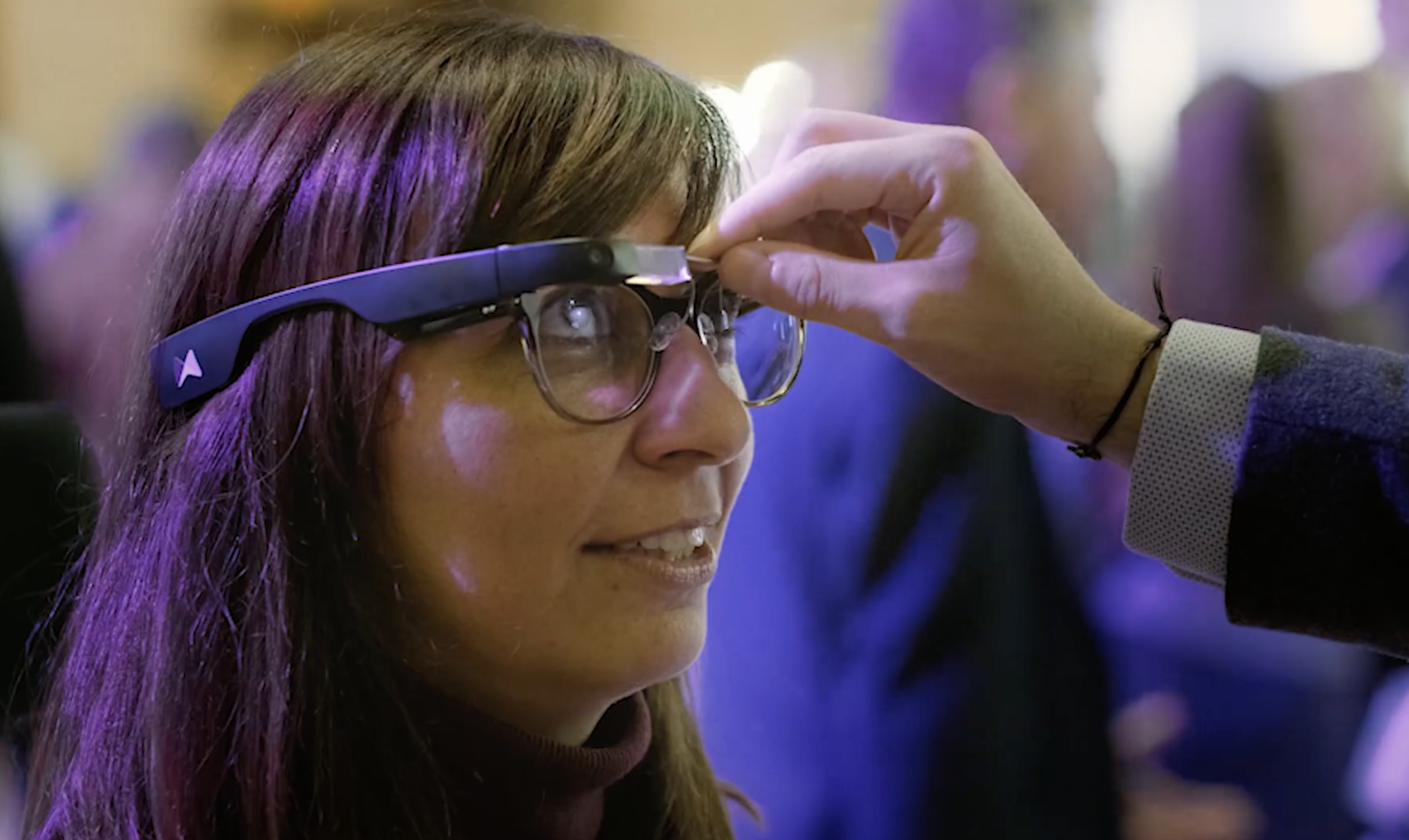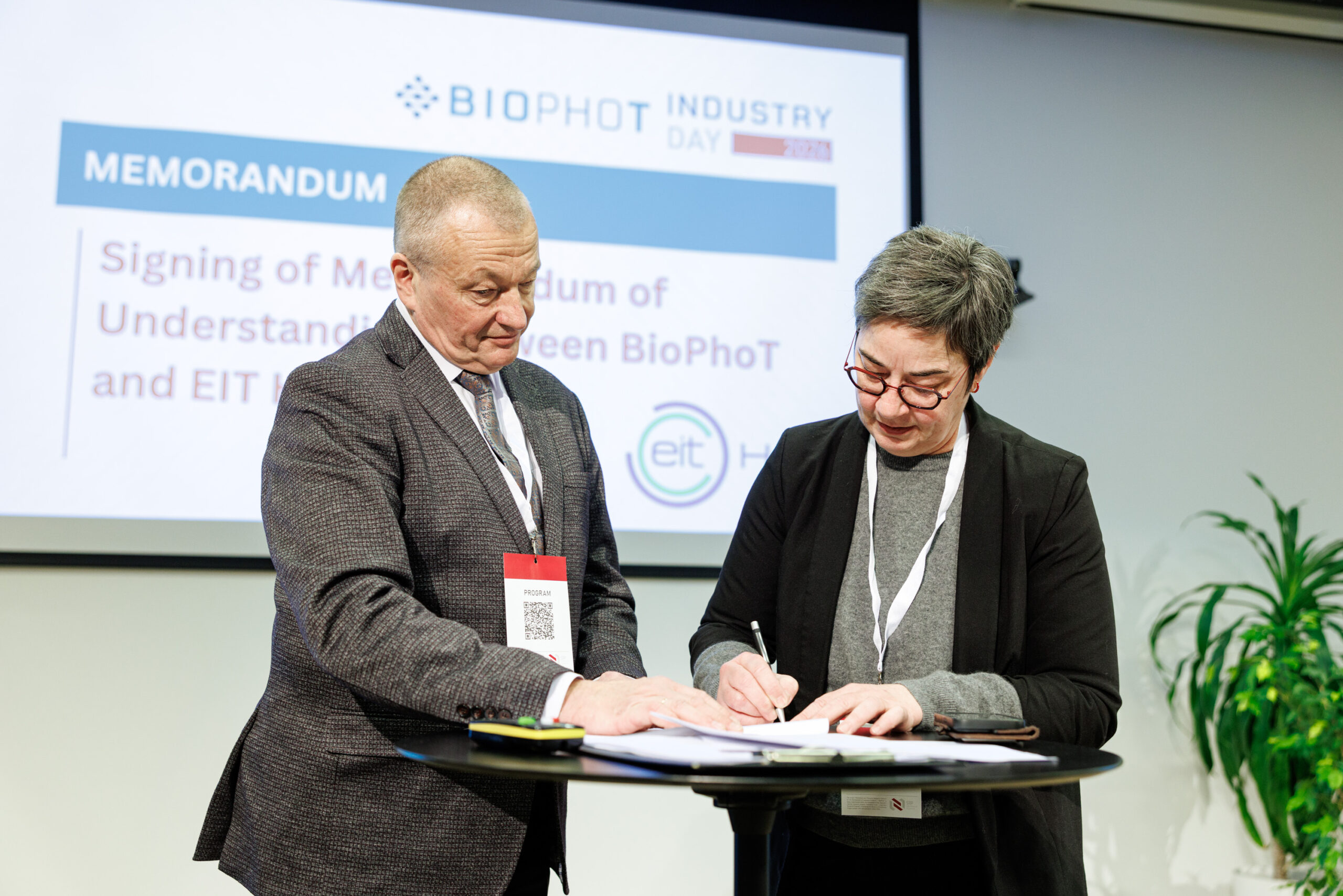9th July 2019
The three types of Campus fellowship programmes are the PhD Transition Fellowships, the new Starship Programme and the Innovation Fellowship
In supporting EIT Health’s overall effort to promote healthcare innovation, the Campus education pillar taps into the ecosystem of our partners to find and nurture some of Europe’s top talents in healthcare, entrepreneurship, data science and other fields that can help to further advances in health.
One way Campus does this is with a fellowship activity line that includes three programmes designed to educate while simultaneously driving potential innovations.

Campus fellowships are unique among European programmes because they use the biodesign process developed at Stanford University. Biodesign is based on the idea that great innovations do not happen by luck or magic but can be achieved using a standarised approach to identifying problems and then brainstorming, developing and testing solutions.
“You go into an environment, in this case a clinical environment, and try to find the needs – try to quantify which are the biggest needs that you should be working on,” explained Daniel Mogefors, who is Associate Director of the EIT Health Campus fellowship programme in Sweden at KTH Royal Institute of Technology and Karolinska Institutet. “Our fellowships are all based on the foundation of clinical immersion.”
The three types of Campus fellowship programmes are the PhD Transition Fellowships, which just opened up for applications on 24 April, the new Starship Programme and the Innovation Fellowship, which is the one that Mogefors works on.
Innovation Fellowships: Multidisciplinary teams
Campus Innovation Fellows work in “multidisciplinary teams, involving a clincal person, an engineer, a designer, and someone with a business background,” according to Mogefors. As a recent graduate of the programme, he is a real believer in the possibilities of the Innovation Fellowships.
“I have a business and engineering background. For me it was a great introduction to the healthcare industry,” Mogefors said. “Being on the floor in the department of anasthesia, working with doctors and nurses gave me a great insight into the whole medtech field.”
There are fellowship programmes based in Galway and Stockholm, for which the application deadlines passed in April, as well as a programme in Barcelona, which has intake in January each year.
Mogefors noted that all the teams are working on real ideas, with genuine commercial potential, and that fellows can pursue these ideas after the programme ends.
“One of the Stockholm program’s success stories is a company sprung out of the cohort that graduated just last May. TADA Medical is a spin-off company from the program, founded by the four original members of the multidisciplinary team,” according to Mogefors, who explained that TADA develops products to make make infusions safer for patients. “So far, TADA has been granted €309 000 in soft funding and is currently a part of the KTH Innovations pre-incubator program.”
StarShip: Challenge is given
EIT Health Campus’s newest type of fellowship is the StarShip Fellowship programme, which started this year. Like other Campus fellowships, this one is needs-based, but instead of identifying the need themselves, the fellows accept a need identified by a major company in the industry. This year, GE Healthcare will be posing the challenge for the StarShip Programme.
“StarShip is based on the biodesign methodology, but we added a twist, we added a challenge from a company as a starting point,” said Dr Jorge Figueira, University of Coimbra, StarShip Project Manager. “We use that challenge as a guiding orientation for the teams. They will try to determine what are the solutions for the challenge.”
As Jorge explained, this arrangement means that fellows are seeking solutions that are more likely to see commercial uptake. The fellows “could use that solution in the real world,” he said, “They can work in an area that has a greater chance for success, because a company is already interested in the results.”
According to Mikolaj Gurdala, Innovation & Education Manager for EIT Health’s Innostars, there are already other companies ready to pose a StarShip challenge for next year.
He said that working on problems posed by companies means that the company becomes more engaged with the fellows. “These people are not working alone, but they are supported by that ecosystem,” said Gurdala. He added that the fellowship provides the opportunity to “link the best talents” with the industry and to get them working in industry while they are still fellows.
PhD Transition Fellowships: Getting grads going
Practical work that may lead to usable innovations are also essential for the third type of Campus fellowship, the PhD Transition Fellowship. This fellowship opened applications on 24 April, and applications are being accepted through 16 June.
“We are not just funding research. We are funding research that is most likely to have an impact,” according to Bass Hassan, Professor of Oncology at Medical Sciences Oxford University and one of the organisers of the PhD Transition Fellowship.
Unlike the other Campus fellowships, Hassan said, PhD Transition Fellows generally work alone, and are developing new ideas that need testing. “Early stage work is of course high risk, so were not expecting all of these ideas to be successful,” he said, but he added that the projects selected for the programme are those “with high probability to capture seed funding”.
A key focus of the programme is to afford “Training of high-level individuals very early in their progress,” said Hassan. “Many of these students are ending up in industry and it just gives them a taste of what they can expect.”
He said the programme seeks to fill a gap in the development of top students.
“In Europe we are very good at establishing programmes for PhD students. What we’re not that good at is stimulating scholars and capturing their ideas as they come out of those PhD programmes, just as they finish,” Hassan said. “We decided to run a programme at Oxford in which we sought to attract the best of the best.”
Encouraging bright young minds
Attracting the brightest people with the most promising ideas is key to all the EIT Health fellowships, according to Hassan.
“The future of Europe is based on the lifeblood of these ideas, and they are going to come out of the best institutions, because they’re concentrating the best minds,” he said.
Gurdala agreed on the importance of finding the most promising students to support. “Because this is an EIT Health initiative, it all starts with the best people,” he said “The people are carefully selected. There is a huge a competition.”
Figueira said the ability to attract the top candidates meant that the StarShip programme is off to a great start. “We have high expectiations for outcomes this year, mainly because the quality of the fellows,” he said.
These fellows can also benefit from association with other future, and current, leaders in healthcare, according to Gurdala. He noted that fellows have the opportunity to network with one another, as well as the top health companies and institutions that make up the EIT Health partnership. “It’s about networking that is really bringing in a change in the industry,” Gurdala said. He added that once these promising minds have been identified, EIT Health and its network can keep supporting them.
“EIT Health is not abandoning them after the fellowship programme,” Gurdala said, explaining that fellows are offered the support of other Campus programmes as well as the Accelerator and Innovation Projects pillars.
Indeed the fellowships, and the ideas that come out of them, are often just the beginning of an innovation journey that begins with an effort to identify needs and solve those needs, according to Figueira. Although the fellowships seek real solutions to important challenges, he stressed that success can take some time. “This is a long run,” he said. “EIT Health is investing real hard in fellows. The time to market of this kind of project, and the growing of this kind of project, is not a sprint, it’s a marathon.”
When Ideas Meet Ambition - How Impact Happens at EIT Health

How Impact Happens at EIT Health
EIT Health and BioPhoT Sign Memorandum of Understanding to Strengthen Health Innovation Collaboration

Strengthening health and life-science innovation in Latvia
